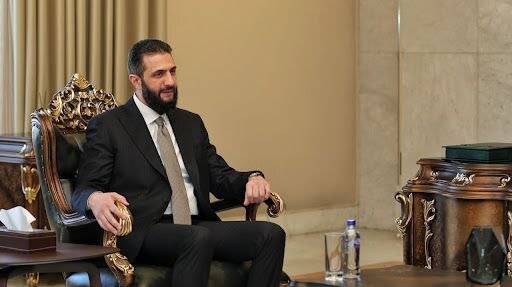Syria vows “no threat to Israel” for sanctions relief

TEHRAN – Syria has reportedly provided a written response to the U.S. conditions for lifting sanctions.
Reuters noted that Syria stated in the letter that it is working to form a committee to monitor the activities of Palestinian resistance groups within its territory, adding that it seeks further discussions on the matter.
Reports have surfaced over the past week of a Syrian government crackdown on Palestinian resistance figures and groups.
Critics accuse the Syrian government of abandoning the Palestinian cause and the ongoing genocide in Gaza in a bid to gain relief from Western sanctions.
Experts have pointed out that the former Syrian government paid a heavy price for supporting anti-Israel resistance movements in Lebanon and Palestine, even rejecting offers of sanctions relief.
The previous government refused to comply with U.S. demands, and as a result, the sanctions remained in place.
According to a letter from the new Syrian government, disclosed by Reuters, “Syria will not pose a threat to any party, including Israel,” even as Israeli occupation forces continue expanding into three southern Syrian provinces and inch closer to Damascus.
The letter further stated, “Syria confirms it has met most of the conditions for easing U.S. sanctions” and “seeks mutual understandings regarding outstanding issues.”
On the matter of foreign fighters in the Syrian army, the new government explained that it requires “a broader consultative session,” but confirmed that “the issuance of military ranks has been suspended.”
The U.S. State Department had previously outlined a list of conditions to partially lift U.S. sanctions against Syria.
These sanctions include those enacted under the Caesar Act of 2019, as well as measures tied to General License 24, which allows limited transactions with the new Syrian government.
According to reports, additional American demands include:
• Appointment of a liaison officer to aid in locating American journalist Austin Tice, detained by the former Syrian government over a decade ago.
• Complete dismantlement of scientific research laboratories.
• A commitment to sever all ties with Palestinian groups, including Hamas and Palestinian Islamic Jihad.
• An assurance that no foreign fighters will hold senior government positions.
• Official designation of Iran’s Islamic Revolutionary Guard Corps (IRGC) as a terrorist organization.
• Public support for the U.S. military mission in Syria and recognition of Washington’s right to target designated individuals within Syrian territory.
• Taking responsibility for the detainees at al-Hol camp, which holds more than 15,000 people, including families of Daesh members, currently under the control of the Syrian Democratic Forces (SDF).
Meanwhile, Ahmad al-Sharaa, the self-proclaimed President of Syria, has called on the U.S. to lift sanctions.
In an interview with The New York Times, al-Sharaa warned that continued instability in Syria could threaten not only neighboring countries but also the wider international community.
During the 45-minute conversation, he urged Washington to reconsider the sanctions, arguing that they were originally imposed because of crimes committed by the former regime, which has now fallen.
“The sanctions were a response to the former regime’s crimes against the Syrian people,” he claimed, pledging that under his leadership, Syrian territory will not be used to threaten any other nation.
Al-Sharaa also revealed ongoing negotiations with Turkey and Russia, suggesting the possibility of future military support from both countries.
The New York Times noted that one of al-Sharaa’s biggest challenges will be forming a unified national army to consolidate the government’s control across Syria.
